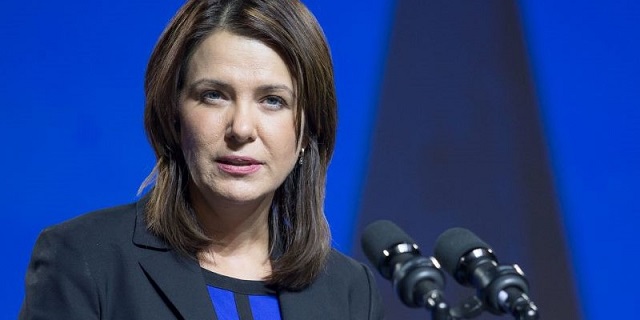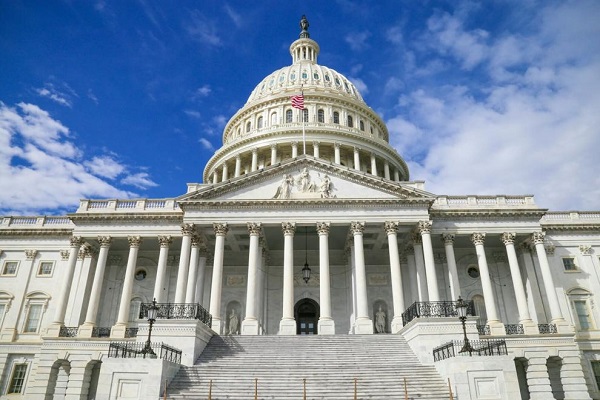Alberta
Don’t use Alberta’s Heritage Fund to pick ‘winners and losers’

From the Fraser Institute
During the mid- to late-1990s, Alberta taxpayers lost more than $2 billion from these failed loans, guarantees and share purchases in major business projects.
Remember the old adage from the writer and philosopher George Santayana that “those who cannot remember the past are condemned to repeat it.”
At a recent Calgary Chamber of Commerce event, Premier Danielle Smith indicated the Alberta government is looking at using Heritage Fund assets “to assist in de-risking projects that were finding it difficult to get financing.” This signals a return to the Alberta government’s industrial policy of the 1970s and 1980s of being in the business of being in business and government picking “winners and losers” as Premier Klein famously said.
A remembrance of the past is in order, so we aren’t condemned to repeat it. Between 1973 and 1992, the Alberta government took a very active role in cultivating economic development. The approach was highly interventionist and involved direct financial assistance through direct loans (even ones issued though the Heritage Fund), loan guarantees and share purchases. The risks attached to these transactions, particularly in a highly cyclical and volatile economy such as Alberta, were significant, generally unknown at the outset, and largely open-ended.
Sure, there were some notable exceptions, but the high degree of risk of direct intervention in the private sector was illustrated by the fact that during the mid- to late-1990s, Alberta taxpayers lost more than $2 billion from these failed loans, guarantees and share purchases in major business projects.
Most notable were losses incurred on such high-profile business projects as Novatel Communications ($556.0 million), the Lloydminster Bi-provincial Upgrader ($392.5 million), the Millar Western Pulp Mill ($244.2 million), Gainers ($208.3 million), the Magnesium Company of Canada ($164.0 million) and the Alberta-Pacific Pulp Mills ($155.0 million).
The premier makes a valid point that financial markets may be averse to financing large business projects because of the risks associated with intrusive federal climate change policies and regulations. Thus, the argument is there’s a need for the provincial government to get involved in financing market failures in the capital markets.
However, from our remembrance of the past practises, raiding the Heritage Fund to pick “winners and losers” is the wrong prescription to solving this problem. Let’s use the tried and true policies of cutting taxes and streamlining regulations to attract more investment capital to Alberta to support business projects. And let’s focus on building a Heritage Fund of $250 billion to $400 billion that will help secure our province’s fiscal and economic future and the future for our children and grandchildren.
Author:
Alberta
Open letter to Ottawa from Alberta strongly urging National Economic Corridor

Canada’s wealth is based on its success as a trading nation. Canada is blessed with immense resources spread across a vast country. It has succeeded as a small, open economy with an enviable standard of living that has been able to provide what the world needs.
Canada has been stuck in a situation where it cannot complete nation‑building projects like the Canadian Pacific Railway that was completed in 1885, or the Trans Canada Highway that was completed in the 1960s. With the uncertainty of U.S. tariffs looming over our country and province, Canada needs to take bold action to revitalize the productivity and competitiveness of its economy – going east to west and not always relying on north-south trade. There’s no better time than right now to politically de-risk these projects.
A lack of leadership from the federal government has led to the following:
- Inadequate federal funding for trade infrastructure.
- A lack of investment is stifling the infrastructure capacity we need to diversify our exports. This is despite federally commissioned reports like the 2022 report by the National Supply Chain Task Force indicating the investment need will be trillions over the next 50 years.
- Federal red tape, like the Impact Assessment Act.
- Burdensome regulation has added major costs and significant delays to projects, like the Roberts Bank Terminal 2 project, a proposed container facility at Vancouver, which spent more than a decade under federal review.
- Opaque funding programs, like the National Trade Corridors Fund (NTCF).
- Which offers a pattern of unclear criteria for decisions and lack of response. This program has not funded any provincial highway projects in Alberta, despite the many applications put forward by the Government of Alberta. In fact, we’ve gone nearly 3 years without decisions on some project applications.
- Ineffective policies that limit economic activity.
- Measures that pit environmental and economic objectives in stark opposition to one another instead of seeking innovative win-win solutions hinder Canada’s overall productivity and investment climate. One example is the moratorium on shipping crude through northern B.C. waters, which effectively ended Enbridge’s Northern Gateway proposal and has limited Alberta’s ability to ship its oil to Asian markets.
In a federal leadership vacuum, Alberta has worked to advance economic corridors across Canada. In April 2023, Alberta, Saskatchewan and Manitoba signed an agreement to collaborate on joint infrastructure networks meant to boost trade and economic growth across the Prairies. Alberta also signed a similar economic corridor agreement with the Northwest Territories in July 2024. Additionally, Alberta would like to see an agreement among all 7 western provinces and territories, and eventually the entire country, to collaborate on economic corridors.
Through our collaboration with neighbouring jurisdictions, we will spur the development of economic corridors by reducing regulatory delays and attracting investment. We recognize the importance of working with Indigenous communities on the development of major infrastructure projects, which will be key to our success in these endeavours.
However, provinces and territories cannot do this alone. The federal government must play its part to advance our country’s economic corridors that we need from coast to coast to coast to support our economic future. It is time for immediate action.
Alberta recommends the federal government take the following steps to strengthen Canada’s economic corridors and supply chains by:
- Creating an Economic Corridor Agency to identify and maintain economic corridors across provincial boundaries, with meaningful consultation with both Indigenous groups and industry.
- Increasing federal funding for trade-enabling infrastructure, such as roads, rail, ports, in-land ports, airports and more.
- Streamlining regulations regarding trade-related infrastructure and interprovincial trade, especially within economic corridors. This would include repealing or amending the Impact Assessment Act and other legislation to remove the uncertainty and ensure regulatory provisions are proportionate to the specific risk of the project.
- Adjusting the policy levers that that support productivity and competitiveness. This would include revisiting how the federal government supports airports, especially in the less-populated regions of Canada.
To move forward expeditiously on the items above, I propose the establishment of a federal/provincial/territorial working group. This working group would be tasked with creating a common position on addressing the economic threats facing Canada, and the need for mitigating trade and trade-enabling infrastructure. The group should identify appropriate governance to ensure these items are presented in a timely fashion by relative priority and urgency.
Alberta will continue to be proactive and tackle trade issues within its own jurisdiction. From collaborative memorandums of understanding with the Prairies and the North, to reducing interprovincial trade barriers, to fostering innovative partnerships with Indigenous groups, Alberta is working within its jurisdiction, much like its provincial and territorial colleagues.
We ask the federal government to join us in a new approach to infrastructure development that ensures Canada is productive and competitive for generations to come and generates the wealth that ensures our quality of life is second to none.
-
Devin Dreeshen
Devin Dreeshen was sworn in as Minister of Transportation and Economic Corridors on October 24, 2022.
Alberta
Premier Smith and Health Mininster LaGrange react to AHS allegations

Alberta Premier Danielle Smith and Health Minister Adriana LaGrange respond to allegations of political interference in the issuing of health-care contracts.
-

 Health21 hours ago
Health21 hours agoRFK Jr: There’s no medical justification for vaccinating one-day-old babies for Hepatitis B
-

 Energy1 day ago
Energy1 day agoFederal Government Suddenly Reverses on Critical Minerals – Over Three Years Too Late – MP Greg McLean
-

 International2 days ago
International2 days agoJihadis behead 70 Christians in DR Congo church
-

 National22 hours ago
National22 hours agoAndrew Scheer exposes the Mark Carney Canadians should know
-

 National2 hours ago
National2 hours agoDid the Liberals Backdoor Ruby Dhalla to Hand Mark Carney the Crown?
-

 Addictions2 days ago
Addictions2 days agoBC overhauls safer supply program in response to widespread pharmacy scam
-

 Business1 day ago
Business1 day agoWorst kept secret—red tape strangling Canada’s economy
-

 Daily Caller1 day ago
Daily Caller1 day agoKash Patel First Statement As FBI Director, Tells Media ‘Bring It On’






